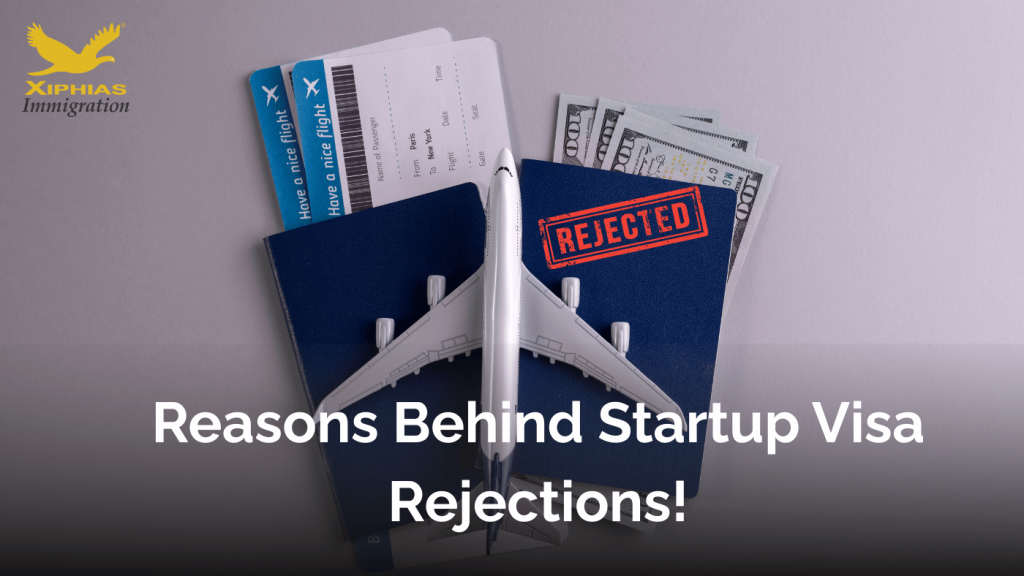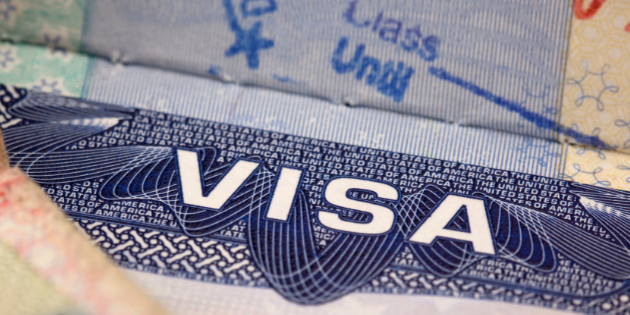Reasons Behind Startup Visa Rejections & How to Avoid Them

In recent years, many entrepreneurs have been looking to startup visas in other countries. Startup visas are a great opportunity to grow their businesses in new countries. These visas provide the chance to set up shop in economies with strong growth, access to expanding markets, and a focus on innovation. But despite all the perks these visas offer, many applications still face Startup visa rejections.
A startup visa sometimes faces rejection. Often, it is because applicants miss critical steps in the process. If you’re thinking about applying for a startup visa, it’s very important to understand why applications fail. By learning about the common reasons for rejection, you can better prepare yourself, avoid mistakes, and boost your chances of success.
What is a Canada Startup Visa?
A Canada Startup Visa is a special program designed to bring in talented entrepreneurs and investors from around the world. The idea is to help businesses grow, create jobs, and level up Canada’s economy. This visa allows entrepreneurs to start and expand their businesses.
Countries like Canada, the US, and the UK all have similar programs to attract skilled entrepreneurs who can create successful businesses that help the local economy. Each country offers different perks, like tax breaks, funding options, and easier immigration processes, to make their programs more appealing.
If any entrepreneur is looking to expand internationally, a startup visa is a great way to take advantage of everything the host country has to offer while growing your business on a global scale.
However, while these programs offer great opportunities, many applicants face challenges in meeting the visa requirements. By understanding the common reasons for startup visa application rejections, entrepreneurs can improve their chances of success and submit a stronger application.
Top Reasons for Startup Visa Rejections
1. Failure to Meet Federal Program Requirements
A common mistake that leads to rejection is failing to meet the specific eligibility criteria set by the federal government of the country you are applying to. Many applicants overlook the essential details of the program, such as the required business size, type, minimum investment levels, and job creation objectives.
Why It Matters:
One of the most common reasons for rejection is failing to meet the basic eligibility criteria set by the federal government. Every startup visa program has specific regulations that applicants must comply with, such as business size, type, and intended impact on the local economy
How to Avoid It:
- Review eligibility criteria for the specific country’s program before you apply. Each nation has its own set of requirements regarding the type of business, size, investment levels, and job creation goals.
- Provide clear documentation proving that you meet the requirements. This could include proof of investment, business viability, and a growth plan aligned with national interests.
- Consult with experts, like Xiphias Immigration, who can help you ensure your application meets all necessary standards.
2. Inadequate or Unclear Business Plan
A major mistake that leads to startup visa rejection is submitting a vague or incomplete business plan. Many applicants fail to provide a comprehensive, well-structured plan that clearly outlines their vision, financial projections, market research, and growth strategy. Without these details, immigration authorities are unable to assess the viability and potential of your business.
Why it Matters :
A strong and detailed business plan is essential for a successful startup visa application. Immigration officers need to understand your vision, goals, and how you plan to sustain your business in the long term. An unclear or insufficient business plan can easily lead to rejection.
How to Avoid It:
- Create a detailed and structured business plan that includes your financial projections, market research, and a clear path to profitability.
- Focus on your unique value proposition, explain how your product or service fills a gap in the market.
- Show how your business will create jobs and benefit the local economy, which is a key factor for many visa programs.
3. Insufficient Proof of Innovation
A common mistake when applying for a startup visa is failing to clearly demonstrate the innovation behind your business idea. Many applicants fail to highlight how their product, service, or technology offers something new or solves a unique problem in the market. Without clear proof of innovation, your business may be seen as just another iteration of existing ideas.
Why It Matters:
Visa programs are designed to attract innovative businesses that contribute to the country’s growth. If your business lacks clear innovation. Whether it’s a new product, service, or technology, you may fail to meet the program’s requirements.
How to Avoid It:
- Highlight your innovation clearly in your application. Whether it’s a breakthrough product, a novel approach, or a unique technology, show how it differentiates you from competitors.
- Provide market research to back up the demand for your innovative idea. Show how it will benefit both the local and global market.
4. Lack of Scalability or Viability
A frequent mistake applicants make is not demonstrating clear scalability or viability for their business. Some entrepreneurs focus on a small-scale operation without showing how their business can grow, expand into new markets, or achieve long-term sustainability. Visa programs prioritize businesses that have the potential to create a significant economic impact, and without scalability, your application may be dismissed.
Why It Matters:
Visa programs prioritize businesses with strong growth potential. If your business lacks scalability, that is, if it doesn’t have the potential to grow or expand, you may not meet the visa criteria, as governments want to attract ventures that will have a lasting economic impact
How to Avoid It:
- Demonstrate clear growth potential. Provide a solid strategy for scaling your business over time, including entering new markets or expanding your product line.
- Show demand for your product/service in both the local and international markets.
5. Financial Instability or Inadequate Capital
Not having sufficient financial backing or failing to demonstrate the financial stability necessary to support their business’s early growth. If you cannot prove that your business has enough capital to cover initial operating costs or sustain its growth, your application may be rejected. Visa authorities need to ensure that businesses have a solid financial foundation before approving them
Why It Matters:
To successfully launch and grow a business, you need a stable financial foundation. Many applicants face rejection if they cannot provide evidence of sufficient funding or financial backing. Immigration officers must be confident that your business can be sustained and grow with the available resources.
How to Avoid It:
- Secure adequate funding through personal savings, venture capital, or angel investors. Be prepared to show proof of the financial resources you have or plan to acquire.
6. Unclear or Incomplete Documentation
Another common mistake many applicants make is submitting incomplete or poorly organized documentation. This could be missing forms, incorrect details, or failing to provide required evidence. Even small errors in the application can result in delays or outright rejection, as visa authorities rely on clear, accurate information to assess the eligibility of applicants.
Why It Matters:
One of the simplest, but most common, reasons for rejection is submitting incomplete or incorrect documentation. This could include missing forms, poorly presented documents, or failing to answer questions truthfully.
How to Avoid It:
- Double-check all documents before submission to ensure everything is complete and accurate.
- Ensure all required forms are filled out correctly and answer questions truthfully; failure to do so can lead to a denial of your application.
- Securing a Letter of Support from a Designated Organization is essential for your startup visa application. It must come from one of Canada’s designated venture capital firms, angel investor groups, or business incubators.
- The letter acts as proof that the organization has evaluated your business idea and is willing to support you by either investing in or mentoring your startup. Without this commitment, your application will not meet the requirements for approval.
How to Avoid Startup Visa Rejections
While these rejections can seem discouraging, they are avoidable. Here are a few steps to strengthen your startup visa application:
- Make sure that your business idea stands out in the global market. It should be innovative and offer something new or improved that meets a specific demand.
- Create a detailed, realistic business plan that demonstrates the viability, innovation, and scalability of your business.
- Secure adequate funding and ensure you can prove financial sustainability for the first few years of business.
- Research the visa requirements and ensure you meet all the eligibility criteria for the specific country.
- Consult with experts like XIPHIAS IMMIGRATION to avoid errors and ensure your application is complete and accurate.
The Role of Xiphias Immigration
The startup visa application process can be complex, and that’s where Xiphias Immigration can help. Our expert team provides advice, helping you build a strong application that meets all the requirements. From assessing eligibility to preparing documents and ensuring compliance, we offer step-by-step guidance to make the process as smooth as possible.
Ready to apply for a startup visa? Don’t risk rejection due to avoidable mistakes. Contact Xiphias Immigration today for expert advice and support to help you launch your business abroad successfully.


One Comment